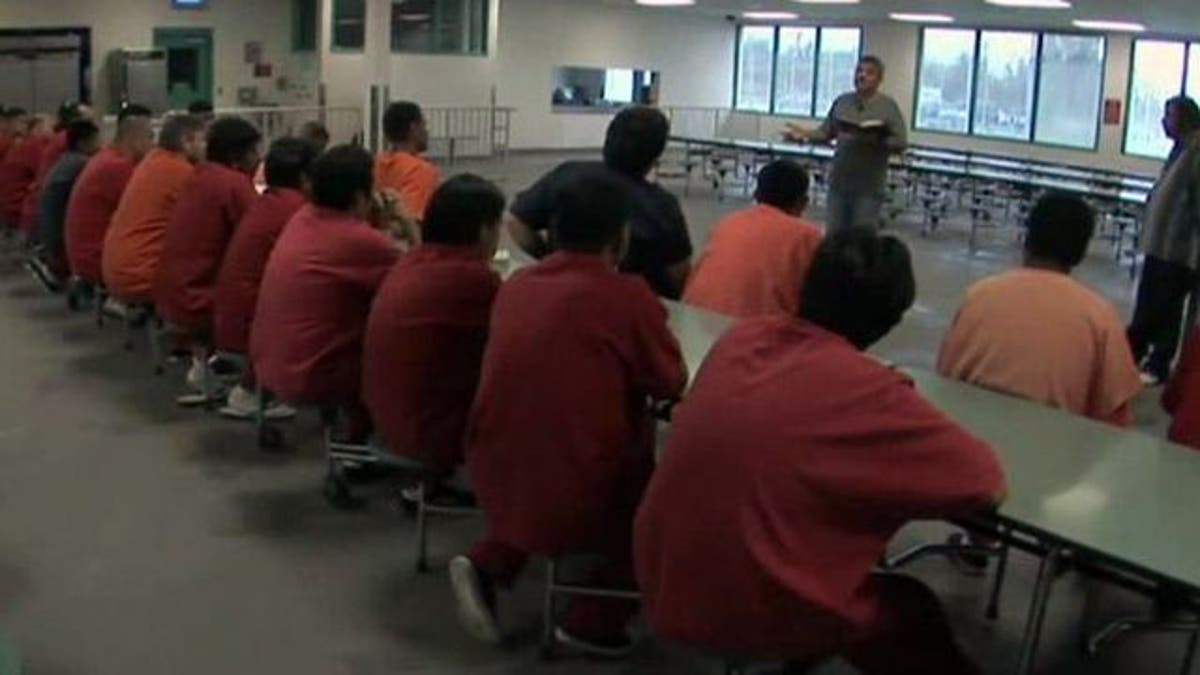
The legislative battle over comprehensive immigration reform is in full swing, with full Senate debate on proposed legislation set to begin next week. But one issue is getting too little attention in this debate: the need for counsel for thousands of immigrants facing deportation every day.
The proposed immigration overhaul would bring a long-overdue path to citizenship to 11 million undocumented immigrants. But it also promises to further ramp up immigration enforcement, meaning that many immigrants would still have to contend with possible deportation.
Most detainees are non-criminals who were caught by a system that has failed to pursue high-risk offenders and instead has zeroed in on your neighbors next door, who pose no security risk and face non-criminal charges.
In a nation that prides itself on equal access to justice, this raises the question: who is advocating for immigrants in their interactions with Immigrations and Customs Enforcement? In too many cases, the answer is: no one.
The last decade has brought our country’s largest ever immigration enforcement build-up, resulting in annual enforcement expenditures exceeding spending on federal criminal law enforcement and over one million deportations during President Obama’s tenure.
Today, thousands of immigrants, both undocumented and those with permanent legal status, and even some citizens, languish in detention centers without any hope for adequate legal representation. They are mothers, sons, grandparents, and mentally disabled individuals.
Most detainees are non-criminals who were caught by a system that has failed to pursue high-risk offenders and instead has zeroed in on your neighbors next door, who pose no security risk and face non-criminal charges.
Take the case of Emilio (a pseudonym to respect confidentiality), a Honduran immigrant who arrived here at age 18, met his wife, and, raised three US-citizen children. Emilio supported his family, paid his taxes, and never committed any crimes. Yet, in 2009, immigration officials arrested Emilio on a train in upstate New York. He later found himself ordered deported when he was not in court.
In early 2012, ICE agents raided Emilio’s Brooklyn home and arrested him, transporting him to detention in New Jersey, where he faced harrowing conditions. To make matters worse, Emilio’s youngest daughter needed surgery, and Emilio could not be with her.
Emilio’s wife sought help from one of our organizations, Make the Road New York, and, with legal intervention, Emilio was eventually released from detention. His case was reopened to allow him to pursue a green card based on his marriage. Emilio managed to get support, but most immigrants in Emilio’s position never find this kind of critical help.
Our American criminal justice system prides itself in ensuring the presumption of innocence, but thousands of indigent individuals are nevertheless incarcerated in jails far from their loved ones, waiting endlessly to be tried in immigration courts and eventually deported, even though they have had no access to legal counsel. Often, those incarcerated waive their rights and choose voluntary self-deportation rather than continue to waste away in jail.
Like Emilio, many immigrants ensnared in our detention system actually have some form of eligibility for relief from deportation. But, without an attorney who can navigate the complicated web of immigration laws, they will be uprooted from their homes and sent back to countries where they have no ties.
The relatively small number of non-profit legal services organizations that provide representation in deportation and removal proceedings cannot meet the demand for services and face tremendous obstacles accessing their clients with the limited detention center schedules for visitation. These organizations have limited funding streams that are vulnerable to private funders’ goodwill, and few have the capacity to have staff travel to distant detention centers.
As negotiations for comprehensive immigration reform go forward, we have an opportunity to correct the deficiencies that plague our immigration enforcement machinery. The proposed bill in the Senate takes a step forward by requiring free counsel for unaccompanied minors, the mentally ill, and other vulnerable people.
But it should go further. A humane immigration bill must ensure free legal representation for all indigent individuals facing deportation proceedings. Non-citizens already have a right to counsel in criminal proceedings, even when it means that they would only be subject to a couple of days in prison. In contrast, we deprive the same non-citizens of their liberty for months on end because of our broken immigration laws.
Public interest lawyers and academics have for several years pondered solutions to increasing incarceration rates, and at least one New York Federal Judge is putting forward a proposal for networks of immigration legal services providers who can represent detainees at no cost.
But our federal government still has an obligation to provide a free lawyer to those incarcerated under its watch who cannot pay for legal representation. That is the least we can do in a country built by immigrants and committed to justice for all.








































